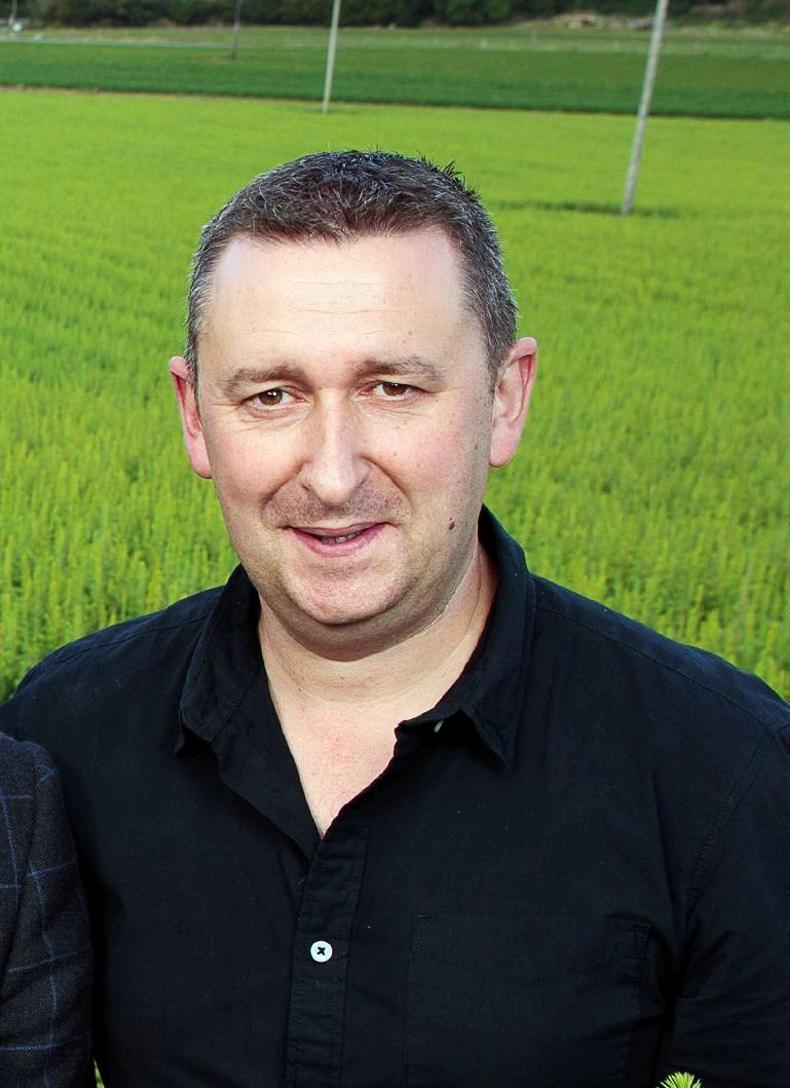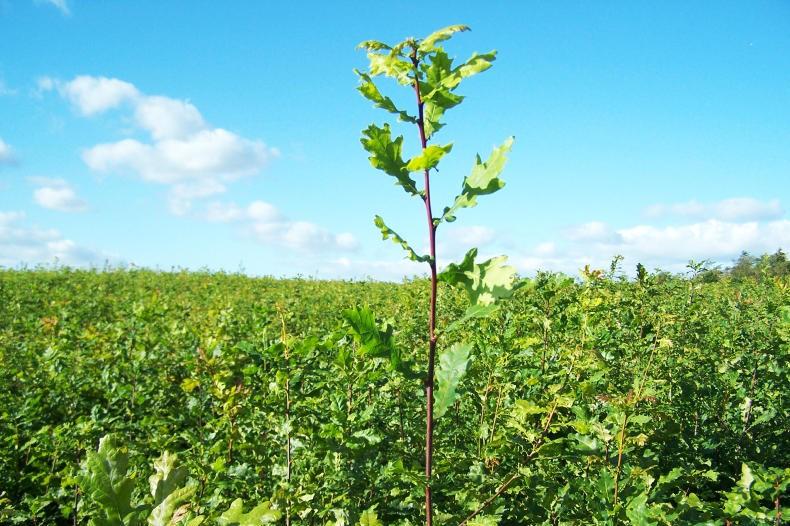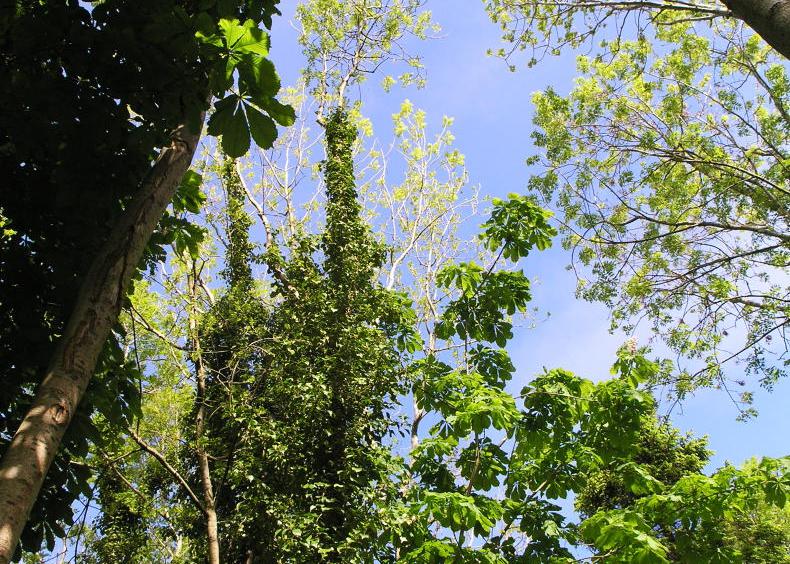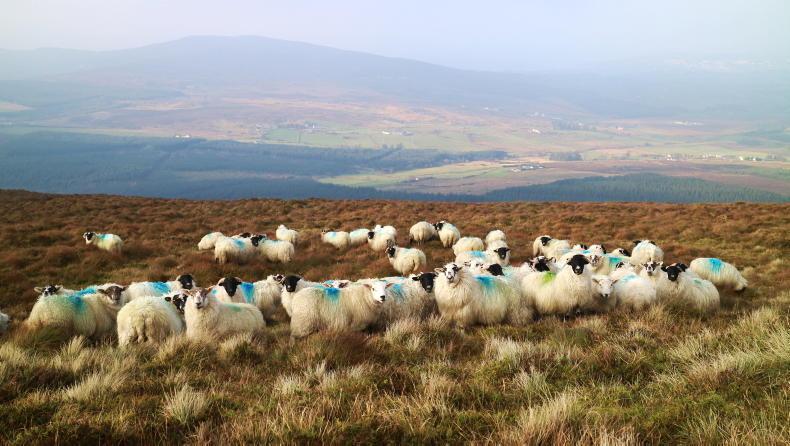Despite the coronavirus pandemic, the forestry sector is at work and strives to deliver a viable programme against the odds. After Brexit and the exceptionally wet February and March, the sector is now trying to come to grips with the greatest ever challenge to face the nation.
Yet, all companies contacted by the Irish Farmers Journal were determined to continue production. Nurseries are delivering plants to sites or putting them in cold storage for later planting, while forestry companies and contractors are preparing sites and planting. Harvesting contractors, sawmills, board mills and wood energy outlets are determined to ensure wood mobilisation can be optimised.
After Brexit and the exceptionally wet February and March, the sector is now trying to come to grips with the greatest ever challenge to face the nation
Maintaining production while safeguarding staff according to HSE and Government guidelines is their main objective and forestry by its nature has inherent health advantages in this regard, especially in relation to social distancing.
While there is unanimity among stakeholders that they will continue to perform, they all identified the slowdown in issuing sufficient planting, felling and roading licences as a major obstacle facing the sector in terms of productivity and maintaining jobs. The planting programme will suffer, while harvesting depends on felling and roading licences. For example, for the fourth month in a row, Coillte cannot provide sufficient logs for an electronic auction, although the company received a number of licences in recent weeks.
For the fourth month in a row, Coillte cannot provide sufficient logs for an electronic auction, although the company received a number of licences in recent weeks
The Department’s performance in issuing licences increased in February and March, but there is still a major backlog. It is vital that Forest Service inspectors and registered foresters maintain dialogue throughout the licensing process, especially during the pre-application phase as recommended by Mackinnon. This is not happening. There are sufficient applications in the system to be screened by both parties and with emergency legislation in place, these could be activated without Forestry Appeals Committee (FAC) hearings. This would free up the FAC to hear the 489 appeals outstanding. These include some oral hearings, which have been indefinitely postponed during the COVID-19 emergency.
There are sufficient applications in the system to be screened by both parties and with emergency legislation in place, these could be activated without Forestry Appeals Committee (FAC) hearings
Otherwise, key forestry operations and jobs are jeopardised. This situation could be alleviated by the Government if emergency legislation was put in place to allow licences for these essential operations to flow. Otherwise, the sector will grind to a halt.
This view has been echoed by nurseries, foresters, growers, contractors and timber processors. Right now, COVID-19 has shaken the sector to its core, but issuing appropriately assessed licences would raise morale and ensure that it continues in business.
A temporary emergency change to the legislation, either to the Forestry Act or through statuary instruments in the Act, would be sufficient to provide assurances. This temporary emergency legislation – like recent government emergency legislation – would be subject to a sunset clause review on 9 November 2020, whereby powers enacted under this new temporary law can be reviewed, with an option to remove or renew.
The following have called for the introduction of emergency COVID-19 forestry legislation:
Matt Dempsey, former editor of the Irish Farmers Journal.Vincent Nally, chair, IFA Farm Forestry.Mark McAuley, director, Forest Industries Ireland (FII), Ibec.Donal Whelan, technical director, Irish Timber Growers Association.Mike Glennon, joint managing director Glennon Bros.Dermot Houlihan, chair, Association of Irish Forestry Consultants.Marina Conway, CEO, Western Forestry Co-op.Paddy Bruton, managing director, Euroforest Ireland and Forestry Services Ltd.Susan Grainger, director, GP Wood.Jim McNamara, director, Laois Sawmills Ltd.John Phelan, director, Woodland Managers Limited.Michael Moroney, CEO, Association of Farm and Forestry Contractors in Ireland.Patrick Murray, director, Murray Timber Group.Sean Finan, CEO Irish Bioenergy Association.John O'Reilly, CEO Green Belt Ltd.Daryl Fahy, managing director, ECC Timber Products.John Roche, managing director, Arbor Forest Management.Dr Gerhardt Gallagher, forestry consultant.Brendan Lacey, managing director, Irish Forestry Unit Trust.John McCarthy, director, None-So-Hardy Nurseries.Padraig Egan, general manager, SWS Forestry.Daragh Little, managing director forestry, Veon Ltd.Alex Kelly, manager, Irish Wood Producers.Kathryn O'Donoghue, CEO, Forest Owners Co-operative Society.Conor Daly, director, The Forestry Company.John Sherlock, chairperson, Northeast Forestry Group. Michael Fleming, past chairperson, IFA Farm Forestry.Brendan Fitzsimons, CEO, Tree Council of Ireland.Pat O'Sullivan, technical director, Society of Irish Foresters.Challenging times for the nursery, but harsh weather and COVID-19 are not the biggest issues

Teige Ryan of None-So-Hardy Nurseries.
The coronavirus has followed the poor weather conditions, which have already presented major challenges to nursery production, according to Teige Ryan, None-So-Hardy Nurseries.
“Despite the wet weather and now the coronavirus, nursery production is in accordance with the Government’s afforestation target of 8,000ha, but only 3,500ha will be planted,” he says. “Failure to deliver the planting programme each year remains the biggest burden and threat to the survival of the nursery, and the livelihoods of our 85 hard working and committed staff”.
“Take 2019 as an example, when the afforestation target was 8,100ha. Our commitment to this programme began in April 2016, when the seeds were sown to start the three-year nursery cycle required, including labour-intensive transplanting from the seedbed in year two to transplant lines.”
The nursery is facing significant losses, as the plants produced have a limited shelf life and can’t be carried over to a fourth year
Plants that made it to harvest are further reduced by 30% through grading inferior plants, leaving high-quality plants to achieve the 8,100ha programme. “Yet disappointingly, only 3,400ha were planted in 2019, leaving huge surpluses of nursery stock,” he says.
“Again, this year the nursery is facing significant losses, as the plants produced have a limited shelf life and can’t be carried over to a fourth year. They become too big to establish on the planting site.”
He points to the recent upsurge in awareness of the importance to plant trees to mitigate climate change, which contrasts with the unsustainable plant surpluses due to reduced afforestation levels.
”Next month the nurseries’ seed sowing programme begins with a new cycle of production for 2023, to fulfil an 8,000ha planting programme. This is achievable, but we need a fresh commitment from the Government to issue sufficient licences and to support a viable afforestation programme,” he maintains.
Despite the coronavirus pandemic, the forestry sector is at work and strives to deliver a viable programme against the odds. After Brexit and the exceptionally wet February and March, the sector is now trying to come to grips with the greatest ever challenge to face the nation.
Yet, all companies contacted by the Irish Farmers Journal were determined to continue production. Nurseries are delivering plants to sites or putting them in cold storage for later planting, while forestry companies and contractors are preparing sites and planting. Harvesting contractors, sawmills, board mills and wood energy outlets are determined to ensure wood mobilisation can be optimised.
After Brexit and the exceptionally wet February and March, the sector is now trying to come to grips with the greatest ever challenge to face the nation
Maintaining production while safeguarding staff according to HSE and Government guidelines is their main objective and forestry by its nature has inherent health advantages in this regard, especially in relation to social distancing.
While there is unanimity among stakeholders that they will continue to perform, they all identified the slowdown in issuing sufficient planting, felling and roading licences as a major obstacle facing the sector in terms of productivity and maintaining jobs. The planting programme will suffer, while harvesting depends on felling and roading licences. For example, for the fourth month in a row, Coillte cannot provide sufficient logs for an electronic auction, although the company received a number of licences in recent weeks.
For the fourth month in a row, Coillte cannot provide sufficient logs for an electronic auction, although the company received a number of licences in recent weeks
The Department’s performance in issuing licences increased in February and March, but there is still a major backlog. It is vital that Forest Service inspectors and registered foresters maintain dialogue throughout the licensing process, especially during the pre-application phase as recommended by Mackinnon. This is not happening. There are sufficient applications in the system to be screened by both parties and with emergency legislation in place, these could be activated without Forestry Appeals Committee (FAC) hearings. This would free up the FAC to hear the 489 appeals outstanding. These include some oral hearings, which have been indefinitely postponed during the COVID-19 emergency.
There are sufficient applications in the system to be screened by both parties and with emergency legislation in place, these could be activated without Forestry Appeals Committee (FAC) hearings
Otherwise, key forestry operations and jobs are jeopardised. This situation could be alleviated by the Government if emergency legislation was put in place to allow licences for these essential operations to flow. Otherwise, the sector will grind to a halt.
This view has been echoed by nurseries, foresters, growers, contractors and timber processors. Right now, COVID-19 has shaken the sector to its core, but issuing appropriately assessed licences would raise morale and ensure that it continues in business.
A temporary emergency change to the legislation, either to the Forestry Act or through statuary instruments in the Act, would be sufficient to provide assurances. This temporary emergency legislation – like recent government emergency legislation – would be subject to a sunset clause review on 9 November 2020, whereby powers enacted under this new temporary law can be reviewed, with an option to remove or renew.
The following have called for the introduction of emergency COVID-19 forestry legislation:
Matt Dempsey, former editor of the Irish Farmers Journal.Vincent Nally, chair, IFA Farm Forestry.Mark McAuley, director, Forest Industries Ireland (FII), Ibec.Donal Whelan, technical director, Irish Timber Growers Association.Mike Glennon, joint managing director Glennon Bros.Dermot Houlihan, chair, Association of Irish Forestry Consultants.Marina Conway, CEO, Western Forestry Co-op.Paddy Bruton, managing director, Euroforest Ireland and Forestry Services Ltd.Susan Grainger, director, GP Wood.Jim McNamara, director, Laois Sawmills Ltd.John Phelan, director, Woodland Managers Limited.Michael Moroney, CEO, Association of Farm and Forestry Contractors in Ireland.Patrick Murray, director, Murray Timber Group.Sean Finan, CEO Irish Bioenergy Association.John O'Reilly, CEO Green Belt Ltd.Daryl Fahy, managing director, ECC Timber Products.John Roche, managing director, Arbor Forest Management.Dr Gerhardt Gallagher, forestry consultant.Brendan Lacey, managing director, Irish Forestry Unit Trust.John McCarthy, director, None-So-Hardy Nurseries.Padraig Egan, general manager, SWS Forestry.Daragh Little, managing director forestry, Veon Ltd.Alex Kelly, manager, Irish Wood Producers.Kathryn O'Donoghue, CEO, Forest Owners Co-operative Society.Conor Daly, director, The Forestry Company.John Sherlock, chairperson, Northeast Forestry Group. Michael Fleming, past chairperson, IFA Farm Forestry.Brendan Fitzsimons, CEO, Tree Council of Ireland.Pat O'Sullivan, technical director, Society of Irish Foresters.Challenging times for the nursery, but harsh weather and COVID-19 are not the biggest issues

Teige Ryan of None-So-Hardy Nurseries.
The coronavirus has followed the poor weather conditions, which have already presented major challenges to nursery production, according to Teige Ryan, None-So-Hardy Nurseries.
“Despite the wet weather and now the coronavirus, nursery production is in accordance with the Government’s afforestation target of 8,000ha, but only 3,500ha will be planted,” he says. “Failure to deliver the planting programme each year remains the biggest burden and threat to the survival of the nursery, and the livelihoods of our 85 hard working and committed staff”.
“Take 2019 as an example, when the afforestation target was 8,100ha. Our commitment to this programme began in April 2016, when the seeds were sown to start the three-year nursery cycle required, including labour-intensive transplanting from the seedbed in year two to transplant lines.”
The nursery is facing significant losses, as the plants produced have a limited shelf life and can’t be carried over to a fourth year
Plants that made it to harvest are further reduced by 30% through grading inferior plants, leaving high-quality plants to achieve the 8,100ha programme. “Yet disappointingly, only 3,400ha were planted in 2019, leaving huge surpluses of nursery stock,” he says.
“Again, this year the nursery is facing significant losses, as the plants produced have a limited shelf life and can’t be carried over to a fourth year. They become too big to establish on the planting site.”
He points to the recent upsurge in awareness of the importance to plant trees to mitigate climate change, which contrasts with the unsustainable plant surpluses due to reduced afforestation levels.
”Next month the nurseries’ seed sowing programme begins with a new cycle of production for 2023, to fulfil an 8,000ha planting programme. This is achievable, but we need a fresh commitment from the Government to issue sufficient licences and to support a viable afforestation programme,” he maintains.










SHARING OPTIONS